Games Workshop dropped an absolute bombshell of an update today, with FAQs for the majority of factions, tons of clarifications, and big adjustments to everything from core rules to key faction abilities. There’s a ton to sift through but if you wanted a concise review of what changed and what it means, look no further – we’ve got you covered.
Fuck Pythagoras
If you’re active in any of the various competitive 40k groups out there on the Internet, you may have seen the firestorm that resulted from someone raising a fairly simple point – for models that measure to the hull, strictly applying basic geometry meant that you could deep strike them 9” away from enemy models but then, thanks to the vagaries of Engagement Range, only need to make an 8” charge into melee.
The first change in the new errata addresses this, requiring you to always use the horizontal distance when applying rules such as “deploy more than 9” away from enemy models” – effectively meaning the problem never arises. This does have a hilarious knock-on effect that models on upper floors can still provide a perfect circle of deep strike denial below them (possibly funniest on Infiltrators, which can provide a full 24” diameter of deep strike denial while nestled 6” up a tall ruin, should they wish), but you can’t have everything – and with most tournament tables having limited verticality to begin with, and the 5” vertical engagement range in 9th edition, it’s a lot more possible to deal with that issue than it once would have been.
Reinforcements also got an additional smaller clarification around setting up strategic reserves units within 1” of your own battlefield edge, preventing you from setting the unit up “within 1”” by placing a single model there and then stringing out the rest.
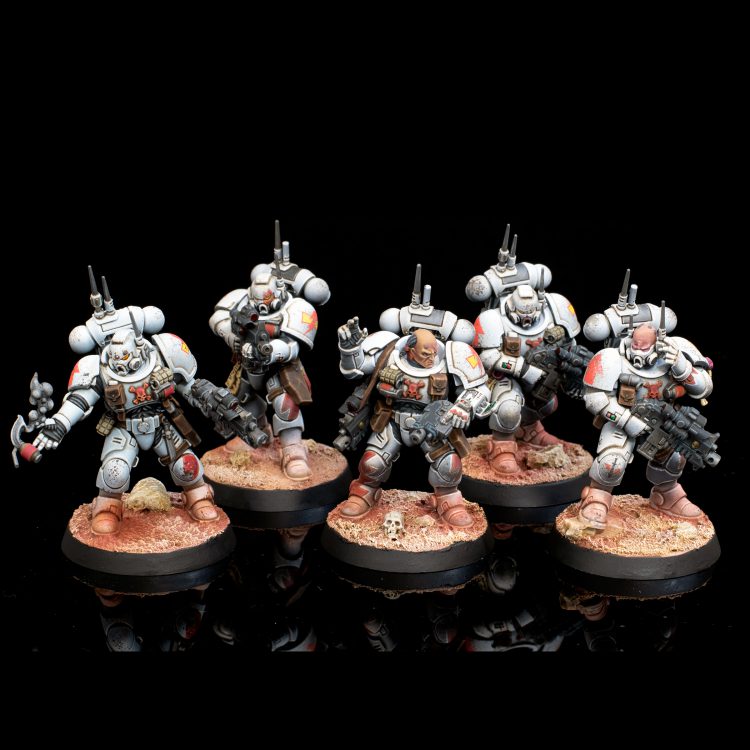
You Can’t Summon Your Rules Away
As 9th edition codexes release, factions are gaining rules that only apply if every model in the army meets particular keyword requirements – for example, Space Marines only gain Combat Doctrines if every model in the army has ADEPTUS ASTARTES (subject to a couple of exclusions). There was an argument that in some situations you could lose these rules during the game, for example if playing Death Guard and summoning a Daemon unit. The new FAQ specifies that this is not the case – you check for eligibility for these abilities once, at the “Muster Armies” step, and then you’re done and can’t gain or lose them due to things that happen on the table later.
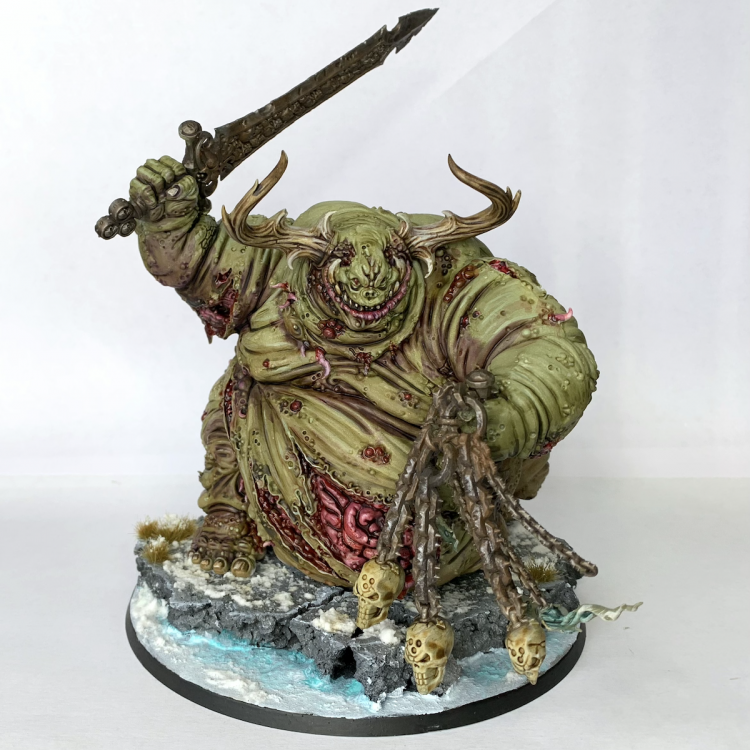
We Finally Know When Deployment Is
A regular annoyance with the 9th edition rules has been clarifying exactly when the “deployment phase” actually occurs – the mission rules include a couple of different steps which could equally claim that title, and the timing of the most obvious one (Step 11, Deploy Armies) didn’t totally make sense with how some abilities worked. We now have a fully detailed list of exactly when different things take effect, with examples included – a huge benefit for clarifying and streamlining how this works.
That said, one timing piece still has not been fixed – “before the battle begins,” such as in the Shadow Assignment stratagem for Imperial Assassins. This still requires house ruling in order not to break the game – the FAQ seems to suggest that step 13 Resolve Pre-Battle Abilities would be the appropriate timing, but then you have to ask questions like “how do I deploy the new assassin” and “what happens to the one that has already had to be deployed” and the game breaks.
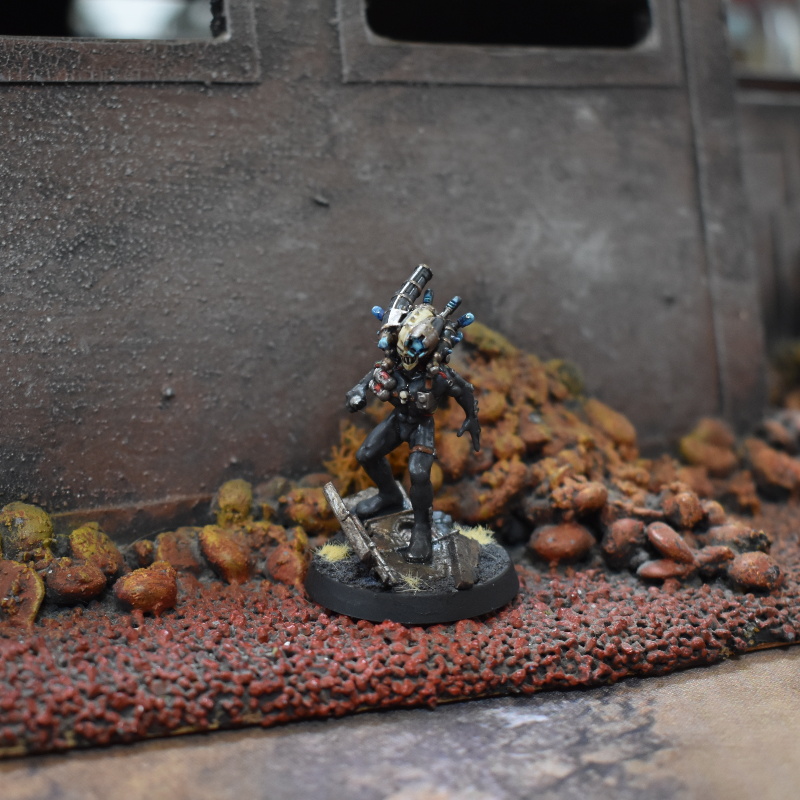
Access Rights Requested
A few abilities/relics – notably the Tome of Malcador – hinged on knowing exactly what psychic disciplines a model “has access” to, and in particular whether this meant ‘the lore you chose your powers from’ or ‘any lore you could have chosen powers from.’ This has now been clarified with a detailed three-bullet point list, which sets out exactly what you count as being able to access depending on whether the lore is on your datasheet or chosen from somewhere else. Essentially you always “have access” to lores listed on your datasheet (per point 1), or to lores in addition to those listed on your datasheet (point 2), but if you can pick from a lore instead of one on your datasheet (point 3) then you’re stuck with that lore from that point onwards – which, coming back to the Tome, means you can’t mix and match lores with that particular relic.
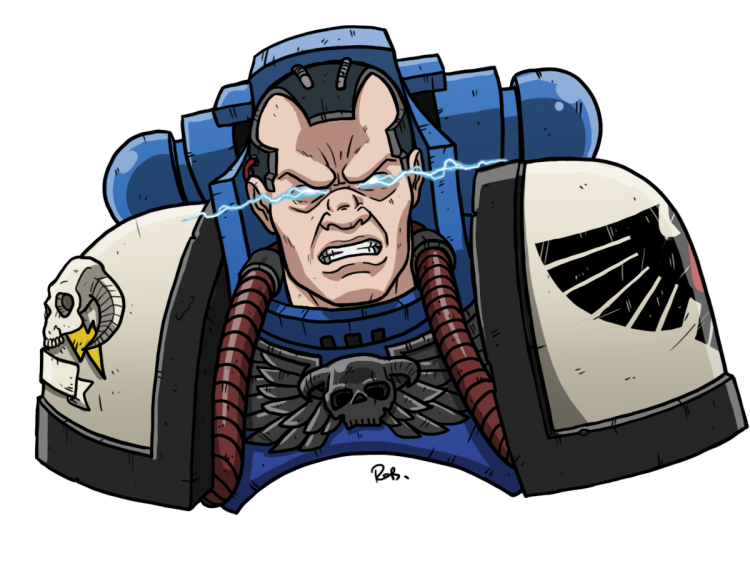
Inexorable Means Inexorable
The terrain trait for Difficult Ground has had a minor but very welcome tweak – it now affects your Move characteristic, rather than just reducing your movement generally. The key impact here is for Death Guard, whose army trait was previously incredibly narrow and didn’t work for this most common use case, and who can now properly march across Difficult Ground with reckless abandon.
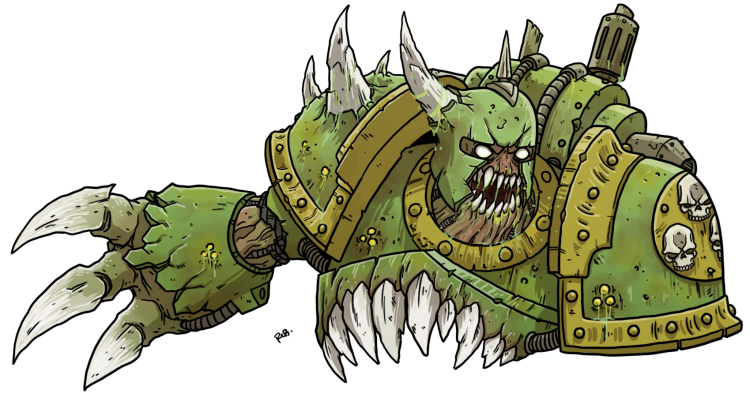
Always Fight First/Always Fight First – Third Time Lucky
One of the key rare rules in 9th edition was the clarification of always fight first/last abilities and how these impacted on each other. Despite the good intentions, this has been a confusing mess for most of its existence – did charging count as an “always fight first” ability? What about “not eligible” abilities, which simply removed your ability to fight at all? Does Counter-offensive actually work? If you have multiple fight first abilities, can you “cancel out” one always fights last, and then still fight first?
The good news is that at the third attempt this has finally been re-written to function properly. Now, any number of fight first and any number of fight last cancels out (a theme we’ll see repeated), and charging is clarified to be a fight first ability. “Not eligible” does stop you using Counter-offensive while other abilities such as “cannot fight until all other eligible units” don’t, but it also is cancelled out by “always fights first”, so your unit fights as if affected by neither instead of “not eligible” effectively being a super fights-last that would always win.
This is a big and important set of changes – most significantly it makes “not eligible” a lot less powerful than it was, but it also just makes the Fight phase neater in general.
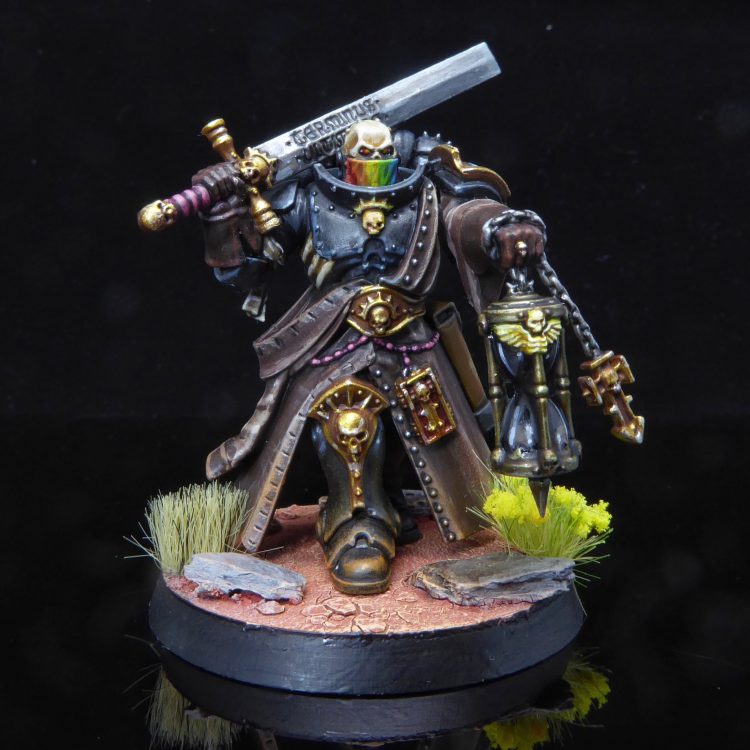
Blender Malfunction
The interaction between the Competitive Edge Warlord trait and Razorflails has been highly contentious ever since the Book of Rust released, with the “Blendcubus” able to unleash a truly horrific number of attacks. The rare rule for attacks with multiple hit rolls has now been clarified to state that abilities like Competitive Edge can never benefit from rules that would give you more than one hit roll – so while it’s still possible for the Succubus to throw out 14 attacks, miss all of them and try another 14, she no longer gets to double up those attacks as well. It’s still a great combo, it just doesn’t have the feels-bad component any more.

Rules for Standing Still
9th edition introduced multiple different movement types to the game for additional clarity, one of which was Remain Stationary – effectively that your unit didn’t move. This status seems simple but is actually quite complex, especially since it’s used in some special rules to ignore the effects of moving. There’s now an 8-point rare rule breakdown of exactly what “rules that count as remaining stationary” actually entail, which picks up all the edge cases this introduced – most critically, it means that if you Fall Back and then count as Remaining Stationary you can shoot, boosting the power of Mont’ka specifically. It also has important carve-outs for units arriving from reinforcements (they simply don’t count as applying), for transports (you can’t disembark after moving, even if the transport counts as being stationary), and for actions (you can’t do an action after Advancing or Falling Back even if you count as being stationary).

Objective Insecure
An increasing number of abilities allow you to remove Objective Secured from an enemy unit, and there’s a new rare rule clarifying how these interact where e.g. you have multiple sources of Objective Secured, or if you have extra abilities from having Objective Secured such as counting as having more models holding an objective. The answer is basically that removing Objective Secured always wins, and you can’t claim to override it by having multiple sources.
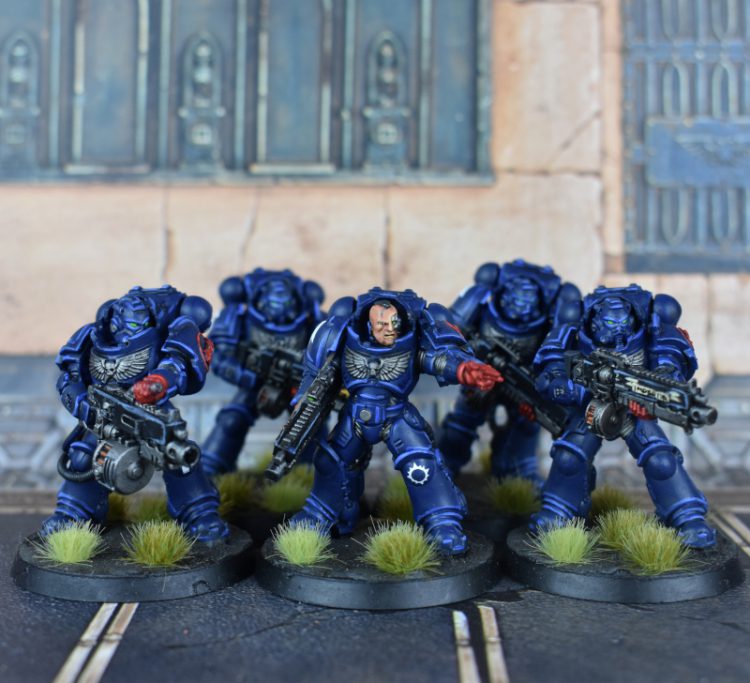
Vect Wins
The Drukhari book raised lots of questions (such as “Why are all these units so cheap?”), but one of the odder interactions arose from the interaction between Agents of Vect and Selfless Healer – due to the ‘attackers priority’ rare rule, the former simply didn’t affect the latter, as the Space Marine player could simply choose to resolve them in an order which meant they still got to use Combat Revival for 0CP. This has now been fixed, and any rules that set a stratagem cost to a specific value are used first, and then modifiers applied after. The mon’keigh should have known not to defy Asdrubael Vect.
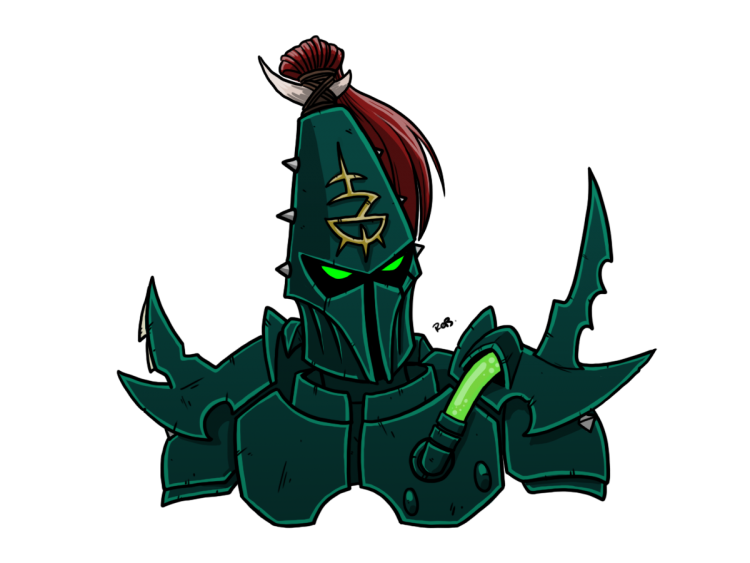
No More Vibrationwing
Any time a rule has come up requiring you to move a particular distance to receive a benefit, there have been players arguing that you can “count as” moving by staying stationary – the argument being that your bikers simply rode in a complete circle, or back and forth along a line, for sufficient distance to count as having moved. The rules were silent on whether this counted, but we are glad to report this fucking bullshit has now been firmly put to bed – your unit has to actually move as far as the rule says, and doughnuts don’t count. The main thing affected here is the Death on the Wind secondary for Ravenwing, as the units now have to actually move to count as scoring it.
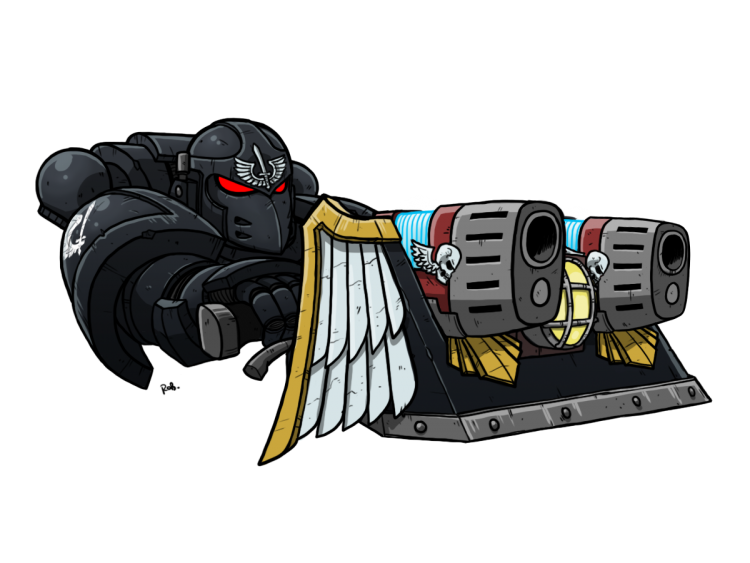
The Rest
There’s a few other minor changes in here too, as follows:
- Charge distance gets a glossary update to clarify exactly what it means
- Suffers damage is clarified to mean “reached the Inflict Damage” stage – if you then roll a 5+ to ignore the wound, you still count as suffering damage
- Psychic powers that modify characteristics don’t get to double-dip any more; for example if you have a power that reduces a model’s Leadership and also benefits from the casting roll beating their Leadership, you check against the pre-modifier characteristic
- Reinforcement units and the like can definitely benefit from stratagems used “in the Movement phase”
- Resurrected models don’t count as having lost wounds or had attacks allocated to them this phase
Overall, we think this is a really good set of core rules updates, which have done a lot to answer long-standing questions as well as addressing some hot issues that fell outside the expectations of the designers. 9th edition FAQs so far have been a bit sparse, and we’re glad to see a comprehensive set of welcome changes, with the kind of step by step clarity that should hopefully fend off further questions or weird ‘interpretations’ by the more lateral-minded among us.
Have any questions or feedback? Drop us a note in the comments below or email us at contact@goonhammer.com.


